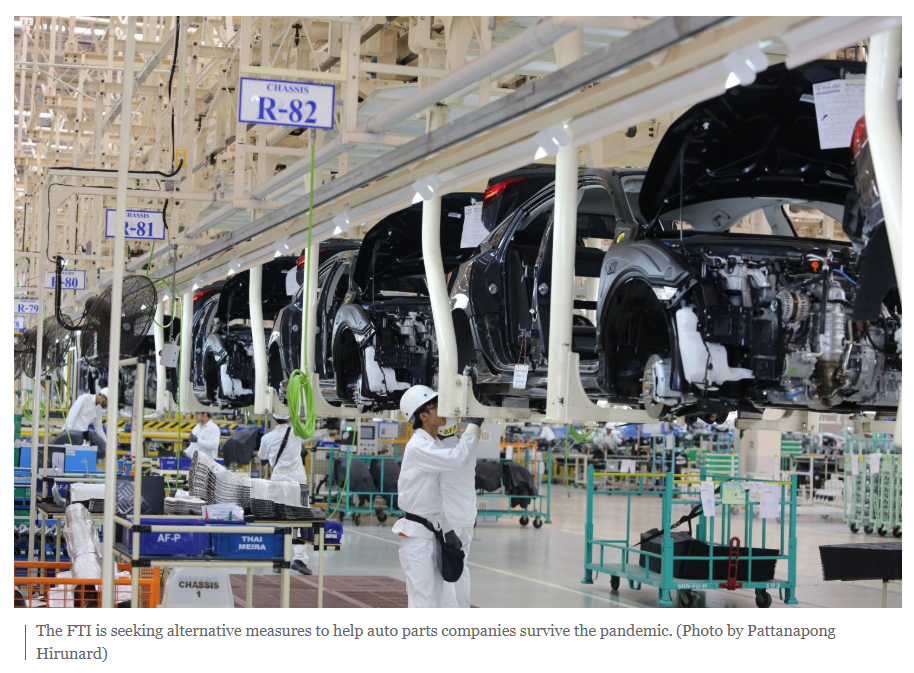Thailand: FTI mulls repurposing auto parts plants
The auto parts industry club under the Federation of Thai Industries (FTI) is conducting a study on the feasibility of repurposing domestic auto parts manufacturing plants to make medical devices or aircraft parts instead.
Since the Covid-19 outbreak, the automotive and auto parts sectors have seen a considerable drop in demand, with many plants in Thailand shutting down for months at a time and laying off workers.
Pinai Sirinakorn, chairman of the FTI club, said the group will study shifting the auto parts plants to the new S-curve industries such as medical devices and aviation parts, which are seeing higher demand following the pandemic.
“The club wants to support its members adjusting their businesses to survive and keep operating in the long term,” he said.
The club expects the government’s new S-curve scheme will support domestic auto parts makers in the future.
The new S-curve scheme, designed by the government to turn the country into a hub for modern production technologies and innovation, is expected to see a boost in attention under the economic recovery plan.
The targeted industries included 12 S-curve sectors including cars; smart electronics; affluent, medical and wellness tourism; agriculture and biotechnology; food; robotics for industry; logistics and aviation; biofuels and biochemicals; digital; medical services; defence; and education development.
The FTI said there are about 2,000 auto parts companies in Thailand, of which 700-800 are FTI club members.
The companies, which are original equipment manufacturers (OEM), produce 80% of their parts for global car makers and 20% for the after-market.
OEMs have been severely affected by the Covid-19 outbreak as global car manufacturers in Thailand closed plants and delayed reopening in response to decreased demand.
Thai auto parts OEMs export 40% of production, while the remaining 60% is sold domestically. Some companies produce parts for the used car market.
“This market is continuing to expand slowly because car owners want to buy new parts for maintenance and delay buying new models,” said Mr Pinai.
Last month the club cut its predicted sales value and volume of the auto parts industry for 2020.
According to FTI, car production in April hit its lowest level in 30 years at 24,711 units amid weak global demand, factory shutdowns and widespread layoffs.
The automotive industry may not reach the 1-million-unit threshold this year, which would be a 50% decrease from 2019.
Source: https://www.bangkokpost.com/business/1924156/fti-mulls-repurposing-auto-parts-plants


 Thailand
Thailand




